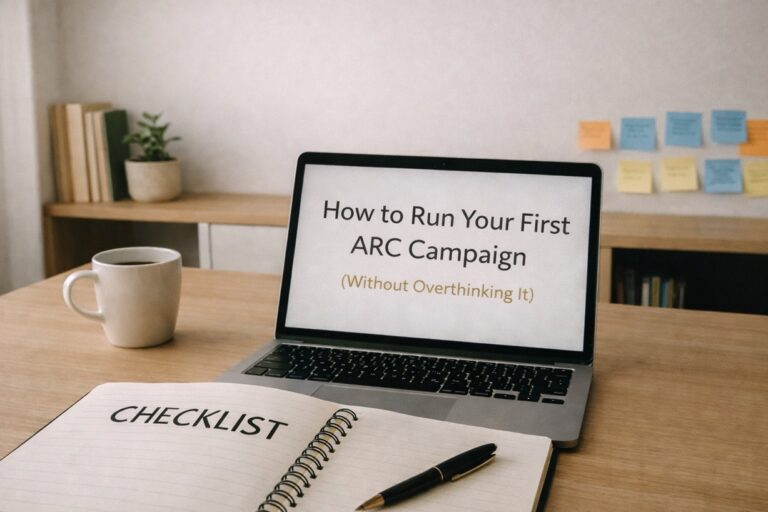Funding Your Indie Author Business—Realistic Money Tips
“Don’t wait for someone else to fund your dream. Start where you are, use what you have, and build from there.” —Arthur Ashe
Launching a new indie author business can be an exciting and thrilling experience. But funding the dream? That’s where things get tricky. From the moment you start exploring grants, fellowships, contests, or community funding, you’ll discover a sobering truth: free money for authors is rare, competitive, and often geared toward a narrow pool of recipients. That’s not to say it’s impossible, but managing expectations is essential. Understanding these challenges will prepare you for the journey ahead.
(Note: This is for educational and informational purposes. It’s not intended as a substitute for a legal or financial professional advisor. Always seek the advice of a licensed professional.)
In this writer’s guide, we’ll unpack the real landscape of grants and funding for an indie author business. You’ll learn where to look, what’s realistic, and which alternative funding paths may offer better returns. Most importantly, you’ll leave with a grounded game plan for financing your dream without wasting energy chasing illusions.
The Myth of Easy Grant Money
Let’s get one thing out of the way. Most indie authors will not find meaningful grant support. Many grant programs are aimed at:
- Academic researchers
- Traditionally published literary authors
- Nonprofits or community-based arts organizations
- Marginalized or underrepresented voices (in very specific categories)
Even for those who qualify, the competition is fierce, and the application process often demands time-intensive proposals, work samples, references, and long wait periods with no guarantee of results.
If you’ve tried and failed to find grants, you’re not alone. Even with a certificate in grant writing, results can be elusive. Not because you’re unqualified, but because the system wasn’t built with a self-funded indie author business in mind.
When Grants Might Be Worth the Effort
With that in mind, if your indie author business falls into one of the following categories, some options might be worth exploring:
- You’re creating a book with a community impact. Some local or arts councils support works that engage a specific population or promote literacy.
- You’re a member of a historically underrepresented group. Some fellowships or diversity-focused arts grants may apply.
- You’re combining writing with education, social justice, or activism. Hybrid projects that involve teaching, workshops, or community service may qualify.
Places to Explore:
- Poets & Writers Grants & Awards Database
- FundsforWriters
- Submittable Opportunities
- Local arts councils and nonprofit foundations
- University or residency programs
But be discerning. Suppose a grant requires pages of documentation or weeks of effort for a slim chance of success. In that case, your time may be better spent writing your next book or launching a Kickstarter campaign.
Smart Alternatives to Traditional Grants
If grant funding isn’t realistic for your indie author business (and it often isn’t), here are several smart alternatives that authors have used to launch or grow their businesses:
1. Author Contests & Awards
These aren’t “grants,” but many offer cash prizes, publication, or visibility. Make sure the contests are legitimate and not thinly veiled scams.
Examples:
- Writer’s Digest Self-Published Book Awards
- Indie Author Project Contest
- Kindle Storyteller Award (UK)
2. Crowdfunding (Kickstarter, Indiegogo)
Crowdfunding remains one of the most effective ways to raise money for your indie author business, with the added benefit of early readers and buzz.
Tips:
- Offer appealing rewards (signed copies, bonus stories, exclusive merch)
- Make a short video explaining your passion for the project
- Set a realistic funding goal. You don’t need $50,000 to make an impact
3. Microloans or Business Credit
Small loans through services like Kiva, PayPal Working Capital, or credit unions can provide a boost when you need to hire an editor or fund a print run.
Caution: Only borrow if you have a plan to repay through future sales or freelance income.
4. Author Patronage Platforms (e.g., Patreon, Buy Me a Coffee)
If you already have a small following with your indie author business, these platforms let readers support your work on a recurring or one-time basis.
Great for:
- Serial content
- Behind-the-scenes writing updates
- Connecting directly with superfans
5. Side Hustles with Strategic Value
If funding your indie author business requires an income boost, consider part-time freelance work aligned with writing (ghostwriting, editing, tutoring) to keep your skills sharp and bank account stable.
Mindset Matters: Strategic Funding, Not Magical Thinking
You’re not failing if you haven’t landed a grant. Most indie authors fund their first books themselves through savings, side gigs, and savvy budgeting. The key is to think like a business owner. Your ability to make wise decisions with limited resources is a superpower. It’s not a limitation. Ask yourself:
- What’s the smallest amount I need to make meaningful progress?
- What revenue streams can I create now to fund my next book?
- Where can I trim costs without sacrificing quality?
Pro Tip: For more about money mindset, read Master the Money Mindset: Fundamentals of Personal Finance from the Experts.
Wrap-Up: You Can Fund Your Indie Author Business Dream
While these alternatives have worked for many authors, success is not guaranteed. The dream of grant money is seductive, but the truth is, you don’t need a grant to build a thriving indie author career. What you need is clarity, strategy, and a willingness to explore alternatives. Whether it’s crowdfunding your first launch, offering services to fund your second, or building a slow and steady platform of supporters, you have options and agency.
Build the business, one wise financial move at a time.
For more guidance, see other writer’s guides, such as Author Financials—6 Top Tips for New Indie Authors. You might also like Outcome-Based Management: 7 Steps to Writing Success.
If you have a draft and want to explore how AI can help you self-publish it, read, Is Your Book Ready to Self-Publish? Lastly, for help writing a non-fiction book, read Write Your First Non-Fiction eBook: a 30-Day Workbook for Getting It Done.
Writing is an ongoing adventure that involves continuous learning and improvement. You don’t have to go through this alone. We are excited to accompany you every step of the way, providing you with the support and motivation you need. Our goal is to give you the necessary knowledge and practical advice to navigate the world of writing with confidence.
Don’t wait. Start today! How can we help? To let us know, please fill out our Contact form. Happy writing!
Checklist: Smart Funding Steps for Indie Authors
- Research realistic grant opportunities based on your genre and audience
- Evaluate whether your project aligns with community impact or nonprofit funding goals
- Bookmark trusted databases like Poets & Writers and FundsforWriters
- Identify 1–2 writing contests with cash prizes and open submissions
- Explore crowdfunding as a funding tool, not a last resort
- Set up a Buy Me a Coffee or Patreon page to start small with patronage
- Review microloan or small business grant programs in your region
- Plan a 6-month savings or side hustle strategy to fund essentials
- Write down your minimum viable budget for your next project
- Replace grant-hunting overwhelm with sustainable business decisions
#


